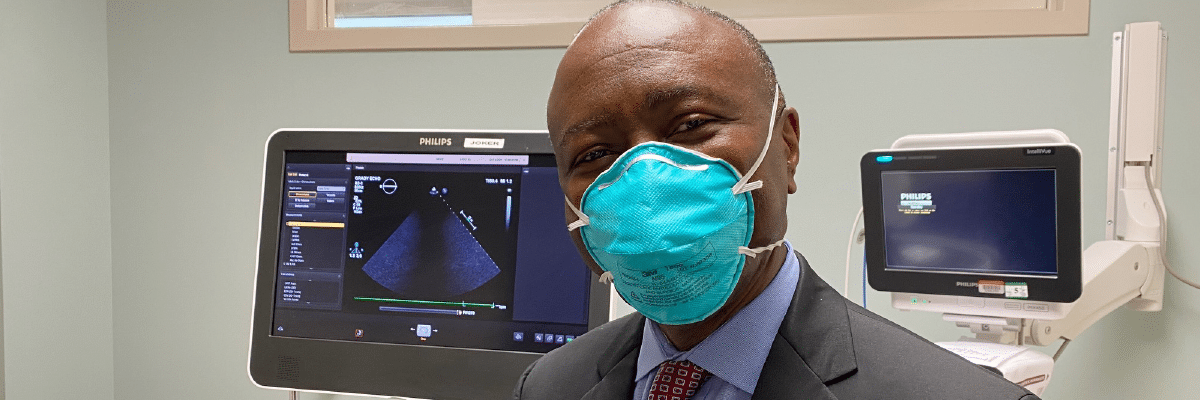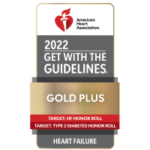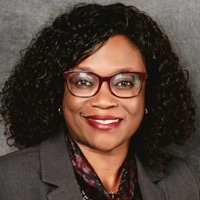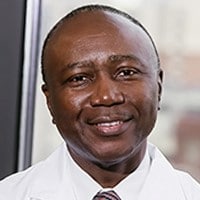Heart Failure Care

Living With Heart Failure
Though the phrase “heart failure” suggests the heart has ceased to function, the term actually means that it is not pumping as it should. With heart failure, the heart is weakened and cannot pump enough blood through the body, resulting in fatigue and shortness of breath. This can make routine activities like walking, climbing stairs, or carrying groceries difficult.
While heart failure is a serious condition, in many cases it can be managed with proper medical care. This means someone with heart failure can live a full, enjoyable, and even reasonably active life.
Our Services
Heart failure often only affects the left or right side of the heart, though it can affect both. Left-sided heart failure is usually caused by coronary artery disease, a heart attack, or long-term high blood pressure. Right-sided heart failure typically results from advanced left-sided heart failure and is then treated in the same way. It is sometimes caused by high blood pressure in the lungs, an embolism in the lungs, or certain lung diseases. Whatever side of the heart is affected, there are two types of heart failure: Systolic and Diastolic, each affecting a different kind of blood pressure. Systolic blood pressure indicates how much pressure your blood is exerting against your artery walls when the heart beats. Diastolic blood pressure is the amount of pressure in your arteries between heart beats.
Systolic Heart Failure
Systolic heart failure occurs when the left ventricle (a chamber in the heart that pumps blood into the circulatory system) cannot contract completely, which means the heart will not pump forcefully enough to move blood through your body efficiently. Systolic heart failure is commonly treated with medication, though sometimes we recommend implanting devices that will help to improve heart function, and in some cases we recommend surgery to correct a heart defect.
Diastolic Heart Failure
Diastolic heart failure occurs when your left ventricle can no longer relax between heartbeats because the tissues have gotten stiff. When your heart cannot fully relax, it is unable to fill up again with blood before the next beat. This type of heart failure most often affects older women and often occurs with other types of heart or lung disease. Though diastolic heart failure is not as well understood as systolic heart failure, treatments for both are similar.
Locations and Directions
Grady Memorial Hospital
80 Jesse Hill Jr Drive SE
Atlanta, GA 30303
Heart & Vascular Center - 2nd Floor
Emergency Care: 24 hours a day, 365 days a year
Outpatient Care: Monday-Friday: 8 AM - 5 PM
(404) 616-1000 (Main)
(404) 616-1000 (Appointments)
Parking is available
Public Transportation
- Georgia State Station (0.5 Miles)
Why Choose Us
No one in Atlanta offers better heart failure care than the Grady Heart & Vascular Center.
Since 2011, Grady has transformed our approach to heart failure care by introducing innovations to address our patients’ unique needs and improve the quality of care. The innovations help each patient overcome barriers to care. For example, we educate patients and their caregivers about their conditions and direct them to programs that can provide financial support, transportation assistance, and other help. For patients at high risk, we use telehealth technology to monitor their blood pressure and weight. We supply at-risk patients with a 30-day supply of medication and ongoing rideshare assistance to make sure they attend clinic appointments, eliminating the barrier to ongoing care. And, we make home visits to patients identified as being at high risk for hospital readmission within 30 days of discharge. The combination of these initiatives has reduced the readmission rate for heart failure patients to less than 11% – down from about 25% before the program began.
 Our innovative approach to heart failure care has been acknowledged by America’s Essential Hospitals, which presented us with a Gage Aware for innovation. The American Heart Association acknowledged the quality of our care by giving us its Get with The Guidelines® – Heart Failure Gold Plus Quality Achievement Award, which is reserved for the nation’s best cardiac units. That award recognizes our commitment to giving heart failure patients the most appropriate treatments possible, based on nationally recognized guidelines. The goal is speeding recovery and reducing hospital readmissions for heart failure patients.
Our innovative approach to heart failure care has been acknowledged by America’s Essential Hospitals, which presented us with a Gage Aware for innovation. The American Heart Association acknowledged the quality of our care by giving us its Get with The Guidelines® – Heart Failure Gold Plus Quality Achievement Award, which is reserved for the nation’s best cardiac units. That award recognizes our commitment to giving heart failure patients the most appropriate treatments possible, based on nationally recognized guidelines. The goal is speeding recovery and reducing hospital readmissions for heart failure patients.
Appointments and Referrals
Grady’s Heart & Vascular Center accepts new patients with referrals from either primary care providers or other specialists. Please ask your provider to use our patient referral checklist and email us the details. We will contact you to schedule an appointment.
If you are an existing Grady patient and have a MyChart account, visit MyChart or call our scheduling line at (404) 616-1000, to make an appointment.
Our Doctors
Every hospital treats patients. At Grady, we strive to treat them better, more efficiently, and more effectively. Our mission to care for all who need us attracts cardiovascular specialists from across the nation. They are drawn here by the knowledge that we test the limits of medicine by innovating existing standards of care, researching cutting-edge drugs and therapies, and exploring novel treatments.
Our zeal for innovation has given Grady a national reputation for medical advancement in areas like cardiovascular disease, cancer, burn, stroke, diabetes, infectious diseases, women’s health, sickle cell, and other conditions cared for by specialists in our centers of excellence. Access to all of these accredited practices is available to every Grady patient and our collegial environment means that specialists routinely help to care for their colleagues’ patients.
Cardiovascular Disease
Cardiovascular Disease, Advanced Heart Failure and Transplant Cardiology




